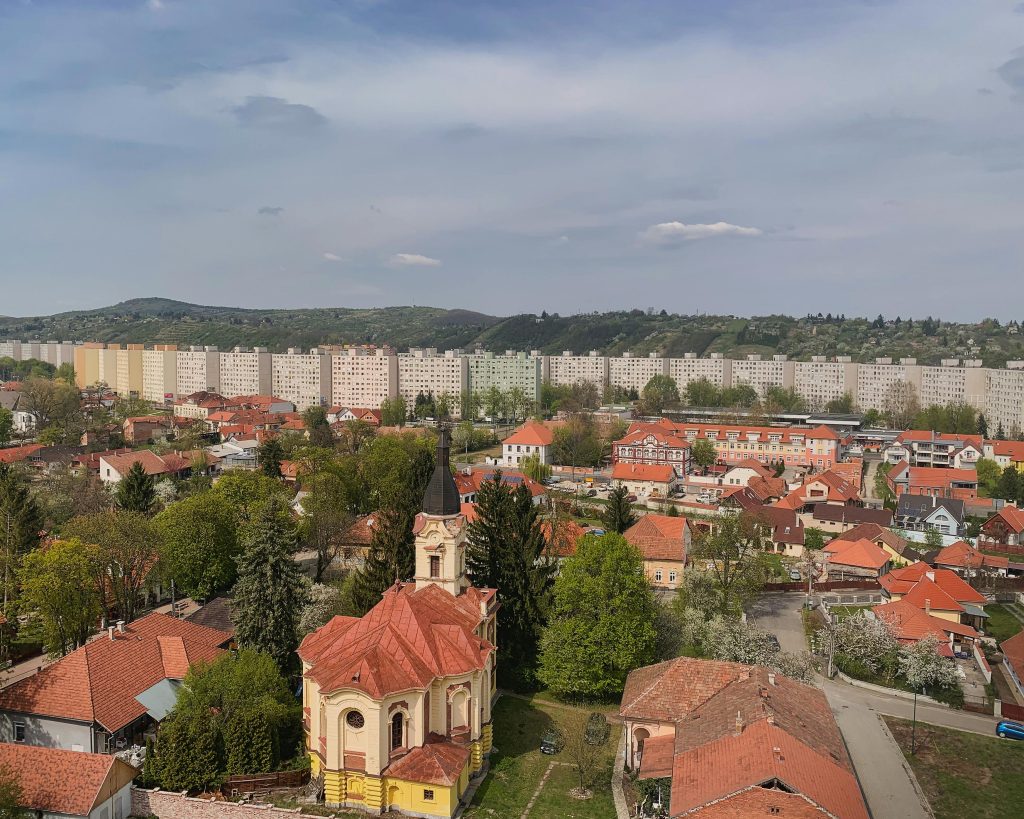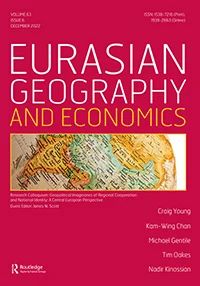
Post-socialism: still here?
by Erika Nagy
The paper is a commentary written for a Research Colloquium published in Eurasian Geography and Economics. The forum is devoted to scrutinize the (non-)relevance of the concept of postsocialism today by authors working in various contexts and having different positionalities. This paper reflects on postsocialism as an ontological context, a subject of scholarly work, and also an epistemic lens through which academics in CEE studied socio-spatial inequalities and positioned themselves in knowledge production in the last two decades. This approach entailed revising earlier findings and unpacking how local, national, and international contexts, academic and political practices, and everyday experiences have been entangled in the author’s work.
The key arguments the paper unfolds are the followings:
- (i) we should re-conceptualise post-socialism rather than abandoning it,
- (ii) and we should do it by ‘de-territorializing’ post-socialism as a condition shaping socio-spatial processes beyond the region where it actually existed,
- (iii) and giving up linear temporality to understand more, how ‘post-ing’ post-socialism has been employed in local development narratives, national policies, and various social practices to promote economic development and change power relations in political arenas marginalizing people, spaces, and counter-narratives of the current regimes in CEE. Finally,
- (iv) the paper also argues for the ‘de-metropolitanisation’ of the debate to get rid of the singular approach to history, and scrutinise narratives dominating knowledge production on post-socialism, which were (and still are) mobilised as a political instruments for submission and exploitation by powerful political agents.
The paper concluded that getting rid of the temporal container approach to post-socialism gives us an insight in the production of socio-spatial marginalities, revealing how spaces of deep and multiple crises emerged in the 1990s, and how people (portrayed as being poor and having no voice) were locked in “left-behind” spaces by discursive and material practices throughout generations hereafter, becoming subjected to class politics in the emerging peripheral capitalist systems. Such spaces are still there representing the counter-narratives of ‘post-ing’ state socialism and also post-socialism. Insights into such processes explain how subsequent crises are related and highlight the cumulative mechanisms of uneven development in former Eastern European contexts and beyond, such as in regions hit by deindustrialization and in rural spaces impacted by the restructuring of urban economies in the current regime of capitalism.
Furthermore, looking beyond big cities in the post-socialism debate also underscores how the current development path of small towns and rural places is rooted in the social relations and practices of state-socialism and the transition period. For instance, municipal agency which is strongly connected to the political transition, still reflects the top-down, technocratic nature of the devolution of political power in the 1990s, which manifests in the financial dependence of local communities on central government, the intrusion of national party politics into local affairs, and the still-weak social (grassroots) embedding of municipal agency in non-metropolitan spaces. The limits of the political and economic power of localities have an explanatory power beyond the macro-region, highlighting how places with little bargaining potential are exploited by external agents in the global periphery. Therefore, we should presume, post-socialism is still a relevant epistemic lens for revealing the multiple causality driving uneven development. It is still shaping political agency and power relations, and reflected in individual life stories (as a still-existing ontological context for a number of Central and Eastern Europeans), in local narrations of the past, and in developing (counter?)narratives of capitalism in Europe.
 Nagy, E. (2025). Post-socialism: still here?
Nagy, E. (2025). Post-socialism: still here? Eurasian Geography and Economics, 1–8.
https://doi.org/10.1080/15387216.2025.2510354


